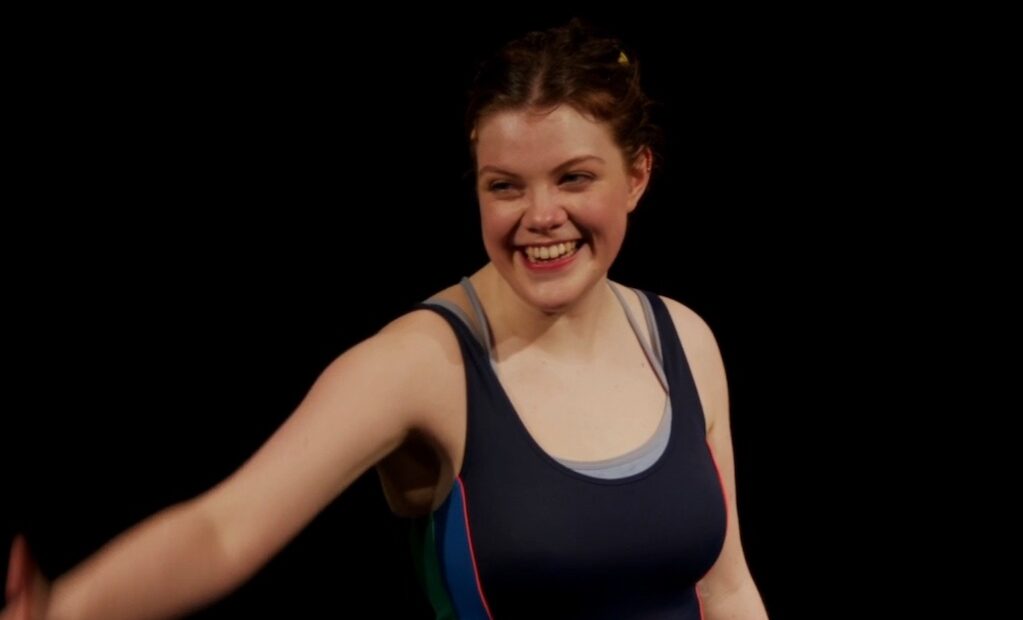Tarantula at Southwark Playhouse

Tarantula begins with a dark stage; Georgie Henley enters and a spotlight flashes open on her. She starts talking, but glitches in the middle of her speech – one might think there was something wrong with their connection, but this is deliberate. Her stillness sells it well, and she expertly moves back to exactly the same position without missing a beat whenever the script calls for it. As it later becomes evident, this is an attempt to recreate a video playback effect that’s constantly on buffer.
Henley, as the production’s only actor, is wonderful and versatile, her mannerisms changing with each character she plays: Michael is nervous and constantly shifts on his feet, Toni’s facial expressions are excited and giddy. These subtle details give life to the performance and cut through the static silence, filling the stage with plenty of personality. The second half of the play shifts into more one-sided dialogue, as opposed to Henley taking on several different roles at once. Her high energy keeps the audience on edge for the rest of the night.
The script is fascinating, with very evocative lines such as “I can feel his breath against my teeth” setting atmosphere in place of backdrops and props, and adding physical tension where there ordinarily wouldn’t be any. It also uses a lot of misdirects and digressions to add dimension. Camera angles and hand gestures create space, making the invisible props more effective – and the transitions from character to character, scene to scene, look smoother and more natural. The lighting switches between the warm filter of the spotlight to dark and cool-toned shadows with heavy contrast, indicative of the changes in tone, from soft and mellow to dark hysteria, and back to the persistent orange glow. Shadows also mask the lack of tears in the crying sequences.
Tarantula ends with a lot of unresolved questions, and plenty of lies and parallels. This catapults the sense of anxiety that has built, while maintaining a realistic touch. The themes range from explorations of love to dealing with PTSD and survivor’s guilt, to suicidal ideation and familial relationships, but the emotional impact of these heavy subjects is greatly reduced by how little time is given for each to flourish. They don’t necessarily lack nuance, just enough space. Most of the time – especially near the end with TonI’s final outburst – the treatment of the issues feels a bit touch-and-go, moving swiftly on, which is counterproductive to the overall experience.
Mae Trumata
Tarantula is available to live stream from Southwark Playhouse on 30th April and 1st May 2021. For further information or to book visit the theatre’s website here.























Facebook
Twitter
Instagram
YouTube
RSS